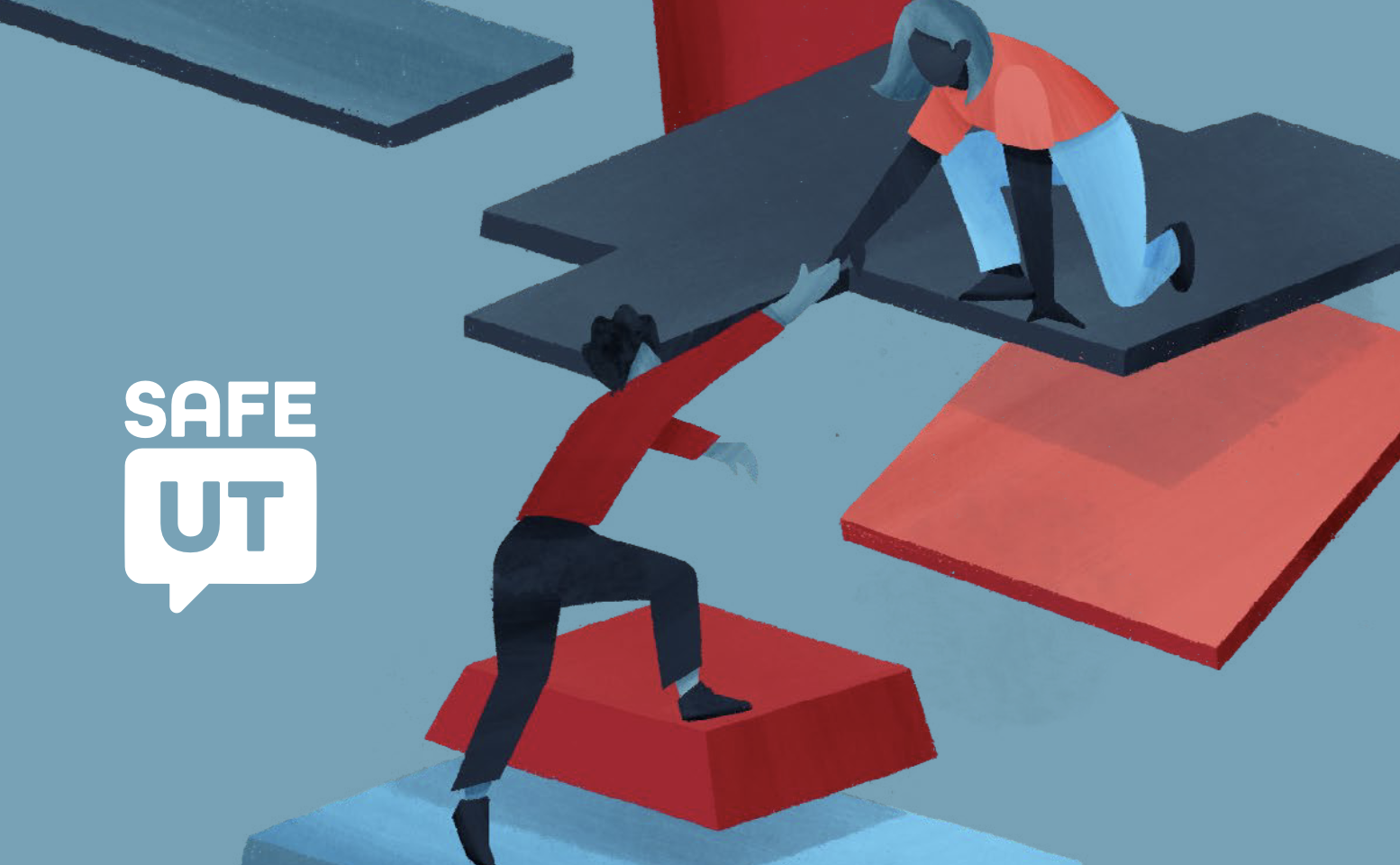
Report: SafeUT Crisis Counselors Exchange More Than 1 Million Chats in Fiscal Year
December 8, 2022
Today, SafeUT publishes its 2021-22 annual report. This comprehensive report outlines key statistics about the statewide SafeUT app related to utilization, chats, life-saving interventions, school threats, and the impact of COVID-19 on SafeUT use.
For the first time, SafeUT mental health counselors with the Huntsman Mental Health Institute (HMHI) exchanged more than 1 million messages with students, parents/guardians, educators, frontline workers, National Guard members, and their families.
Mental health counselors respond to all incoming chats and calls, providing supportive or crisis counseling, suicide prevention, and referral services. If SafeUT users are actively attempting suicide or have plans to harm themselves, SafeUT works in coordination with first responders to initiate an active rescue. Between July 1, 2021, and June 30, 2022, SafeUT conducted 349 life-saving interventions—a 17% percent increase from last year’s 298 life-saving interventions.
“SafeUT is far more than an app—it’s a system of care, and it represents the combined vision of the legislature, Utah Attorney General, citizens, parents, and mental health professionals statewide,” said Ric Cantrell, chair of the SafeUT Commission. “Even with the rise of risk factors, suicide rates have remained relatively flat in Utah over the last year. This is likely due to the increase in supportive mental health services, such as SafeUT. The SafeUT team has stepped up to the challenge, provided professional solutions, and saved more lives than ever before.”
Data show that 87% of SafeUT users reported that the app made them feel heard, and 93% said counselors showed respect for what they had to say. At least 62.5% said SafeUT has made them more likely to seek additional mental health services.
“We’re encouraged to see that SafeUT counselors are making a measurable impact on the well-being of Utahns,” said Rachel Lucynski, director of community crisis services at Huntsman Mental Health Institute. “Our staff is saving lives. We’re all grateful for their dedication and service to improving mental health care access for all.”
More key statistics from the 2021-22 Annual Report:
- 882,427 students have access to the SafeUT app across Utah, up from 850,790 last year.
- SafeUT received 8,537 total tips from Utah K-12 and higher ed students, parents/guardians, and educators, including 1,579 suicide tips, 994 bullying tips, and 456 depression tips. That’s up from 6,274 last year.
- SafeUT received 801 tips for potential school threats or acts of violence, including 157 for guns, 149 for planned attacks, 75 for assault, and 70 for fights. That’s up from 256 threat tips last year.
For youth who may often feel like their opinions and struggles are ignored or devalued, SafeUT provides the listening ear to support hurting youth on their journey to recovery.
The app has expanded to include other populations of Utahns at risk for mental health crisis, including SafeUT National Guard for Utah Air and Army National Guard members, civilian personnel, and their families, along with SafeUT Frontline for Utah law enforcement, firefighters/EMS, health care providers, and their families.
SafeUT allows people facing any type of crisis to chat confidentially with a counselor, call a certified crisis worker directly, or submit confidential tips to crisis counselors. The app is staffed by master’s level trained crisis counselors at HMHI and is available 24 hours a day, 365 days a year.
SafeUT has been recognized nationwide for its effectiveness in saving lives and de-escalating school incidents. The 2021-22 SafeUT Annual Report is available for download. You can also learn more about SafeUT at safeut.org.
SafeUT partners include HMHI and University of Utah Health, Utah Attorney General’s Office, Utah State Board of Education, Utah System of Higher Education, Utah State House of Representatives, Utah State Senate, Utah Department of Health and Human Services, and law enforcement and emergency response.
